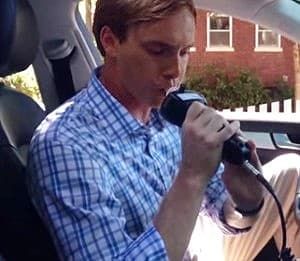 Many traffic laws are passed out of an urgent need to improve public safety, and we’re often impatient to see results. But it takes time to prove the effects of such laws.
Many traffic laws are passed out of an urgent need to improve public safety, and we’re often impatient to see results. But it takes time to prove the effects of such laws.
So it has been with ignition interlock laws. An ignition interlock, or car breathalyzer, prevents a vehicle from starting if the driver has been drinking.
Arizona passed an all-offender ignition interlock law in 2007. From then all, all DUI offenders – including first offenders – had to install the device in their vehicle. After that, the public had to wait to see if this measure did indeed take repeat drunk drivers off the road and reduce alcohol-related road collisions and deaths.
The results were dramatic – a drop of more than 40 percent. But would it last? Recently the research website axlegeek studied data from the National Highway Traffic Safety Administration (NHTSA) to find out which cities and states had the most alcohol-related vehicle deaths.
The findings were pretty interesting:
- The cities that had more alcohol-related road deaths than the national average tended to be smaller to medium-sized. Lack of public transportation is a likely cause.
- Cities with rural characteristics also had more alcohol-related road fatalities. Worse roads, worse driving habits, and sketchier policing all play a part. Knowing that a patrol won’t be around makes drinking and driving more likely.
What was striking about Arizona was the change since 2007, when the state’s ignition interlock law was passed.
Alcohol-related fatalities hit a peak of 8.34 per 100,000 people in 2006, and they were at their lowest point in 2014 with 2.97 per 100,000 people
It was more than just ignition interlocks, of course: driver education, better law enforcement, and public awareness all played a part. But clearly something took a turn in 2007, and it’s very reasonable to conclude that from that year on, convicted drunk drivers were not able to start their vehicles. They had a “time out” during which they could obtain counseling and deal with their alcohol issues. Those who reoffended had their interlock period extended.
Road safety is a numbers game, and in Arizona, the alcohol-related fatality numbers have been looking better over the years. Will it continue? That’s up to the public and the enlightened public officials who got this ignition interlock law enacted, and who can now work on seeing that that it is better enforced.
